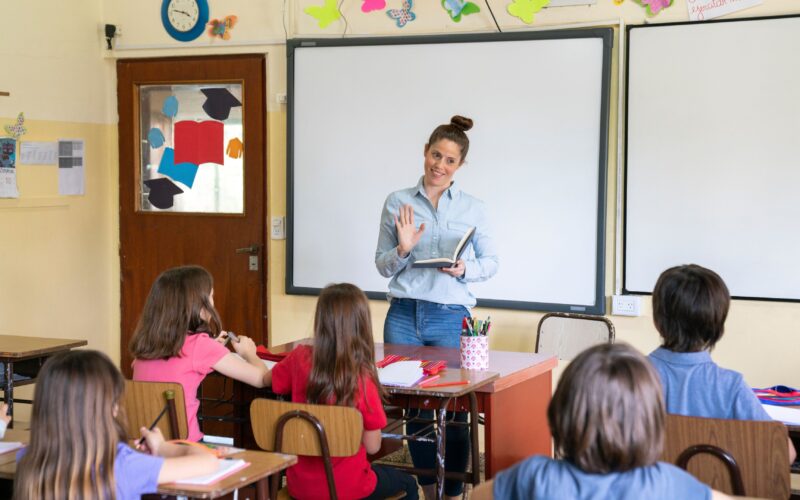“Education is not the filling of a pail but the lighting of a fire.” – William Butler Yeats
In classrooms across the country, educators are discovering that Social Emotional Learning (SEL) lessons do more than support academic success—they ignite curiosity, nurture growth, and help students build the emotional resilience they need to thrive. Satchel Pulse, a leading SEL curriculum and student wellbeing platform, is helping schools bring SEL to life through a structured, engaging, and research-backed approach.
Why Social Emotional Learning Matters in K–12
As the demands on students grow, so does the importance of teaching them how to manage their emotions, build relationships, and make responsible decisions. That’s where Social Emotional Learning comes in. SEL lessons focus on essential life skills that support student well-being and academic performance.
When educators embed SEL into daily routines, they create a school culture that values empathy, communication, and self-awareness. These lessons prepare students not just for tests, but for life.
Benefits of SEL in the Classroom
- Improves mental health and reduces stress
- Strengthens emotional intelligence
- Enhances self-awareness and emotional regulation
- Encourages empathy and teamwork
- Supports responsible decision-making
- Increases student engagement and academic outcomes
By teaching students to understand and manage their emotions, SEL lessons support both learning and lifelong development.
Introducing Satchel Pulse: Your SEL Partner
Satchel Pulse is a comprehensive SEL program built to help schools implement social-emotional learning easily and effectively. With ready-to-use lesson plans, engaging resources, and built-in tracking tools, Satchel Pulse helps educators turn SEL goals into everyday classroom experiences.
What Makes Satchel Pulse Unique?
- Comprehensive Curriculum: Covers self-awareness, emotional regulation, relationship skills, and more.
- Nationally Aligned: Every lesson aligns with national SEL standards, helping schools meet best practices.
- Engaging Content: Includes videos, interactive games, and printable worksheets tailored to all learning styles.
- Flexible Delivery: Ideal for both in-person and remote classrooms.
- Progress Tracking: Built-in assessments help track student growth in SEL competencies.
Satchel Pulse empowers teachers with tools that are both practical and impactful—so SEL isn’t an extra task, it’s part of daily learning.
How SEL Lessons Boost Student Well-being
Student well-being is foundational to learning. When students feel emotionally supported, they are more motivated, focused, and resilient. SEL helps build this foundation by giving students the skills to manage stress, understand themselves, and interact positively with others.
Emotional Intelligence in Action
- Self-awareness: Students learn to identify and express their emotions.
- Empathy: They become better at seeing things from others’ perspectives.
- Resilience: They develop the tools to bounce back from setbacks and handle challenges.
SEL is more than a classroom tool—it’s a strategy for life readiness.
Real Classroom Impact: SEL and a Positive Learning Environment
When SEL becomes part of the classroom culture, the effects ripple through every aspect of student life. Relationships improve. Behavior incidents decrease. Classrooms become more inclusive, connected spaces.
SEL in Practice:
- Peer relationships thrive as students learn to listen, collaborate, and resolve conflicts.
- Inclusivity grows when SEL lessons celebrate diversity and foster mutual respect.
- Emotional safety increases as students gain confidence in expressing their thoughts and emotions.
When students feel seen and supported, they engage more deeply in their learning and with their peers.
Implementing SEL with Satchel Pulse: Tips for Educators
Getting started with SEL is easier than you think—especially with the support of a program like Satchel Pulse. Here are some practical strategies for bringing SEL lessons into your school:
1. Set Clear SEL Goals
Identify the key skills you want to develop—whether it’s emotional regulation, empathy, or decision-making—and build lessons around those themes.
2. Use Engaging, Age-Appropriate Materials
Satchel Pulse includes videos, activities, and discussions designed for every grade level, making SEL accessible for all learners.
3. Create a Safe Learning Space
Ensure your classroom encourages open conversations and emotional expression. SEL thrives in an environment of trust.
4. Make SEL a Daily Habit
Whether it’s a quick check-in or a structured lesson, incorporating SEL regularly builds consistency and reinforces skill development.
5. Reflect and Adjust
Use Satchel Pulse’s progress monitoring tools to assess student growth and adjust instruction as needed.
Partnering with Families and Communities
SEL doesn’t stop at the school door. By engaging parents and caregivers, educators can create a shared approach to emotional development. Satchel Pulse provides resources that help families understand SEL concepts and reinforce them at home.
Involve Caregivers by:
- Sharing weekly SEL goals or activities
- Offering take-home discussion prompts
- Hosting SEL-focused family events or workshops
When school and home align around social-emotional learning, students experience greater support and success.
The Lasting Value of SEL
Students today are growing up in a world that demands adaptability, emotional intelligence, and strong interpersonal skills. SEL lessons give them the tools to thrive—not just in school, but in life.
Satchel Pulse makes it easier than ever to bring SEL into your classroom with confidence. Through engaging resources, evidence-based strategies, and a focus on student well-being, Satchel Pulse helps light that fire of growth and learning in every child.
Final Thoughts
Social Emotional Learning is more than a trend—it’s a transformative approach to education that centers the whole child. With Satchel Pulse, educators can turn SEL from an idea into action, creating classrooms that nurture emotional health, boost academic success, and prepare students for a brighter future.


